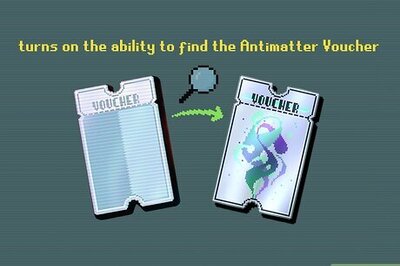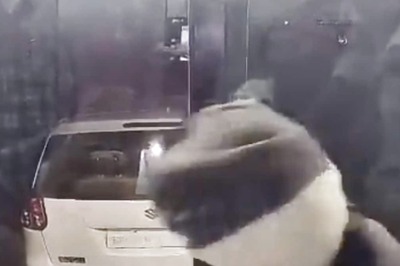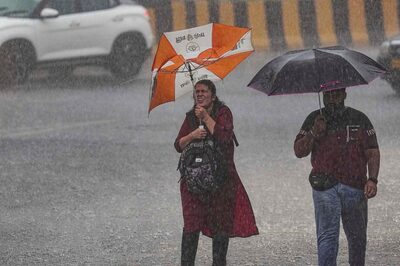
views
On August 6, Ukrainian tanks rolled into the bordering Russian region of Kursk, taking over almost a thousand square kilometres of Russian territory with ease. Russia was so surprised by the attack that it had no defensive strategy in play for the first few days. Its response, according to one expert, has been “shambolic”, even as Ukrainian troops advanced facing little resistance. Putin, meanwhile, has been left red-faced. Is this gamble going to pay off?
Deadly wars are no stranger to the Russian region of Kursk. In 1943, the battle of Kursk, dubbed the “final gasp of Nazi aggression”, was one of the most consequential battles on the eastern front, when Nazi Germany pushed further into Soviet territory. It was the largest tank battle in history with 6,000 tanks and two million troops. With over one million casualties, it is considered one of the costliest battles in the Second World War. Ultimately, Hitler’s forces were defeated by the Soviets, and this played a deciding role in the war.
80 years on, Kursk finds itself turned into a battlefield again — this time between Ukraine and Russia. Ukraine’s incursion into the region has surprised almost everyone, including Russia. No one saw it coming except locals at the ground level who had been sending warnings about a Ukrainian build-up. But they were not heard, and ultimately, Ukrainian troops successfully rolled in and fanned out across a vast area of Russian land. Ukraine has also blown up three bridges in the region. More than 2,00,000 people have been evacuated across all border regions, including Belgorod, and more will follow in the days to come. Ukraine has even captured the city of Sudzha. There is a lot at stake here, including a crucial pipeline.
You see, this region hosts a pipeline that supplies Russian gas to European countries through Ukraine. That’s right, Hungary, Austria and Slovakia are still buying Russian gas, and it is through this pipeline. What’s more, its sole pumping station is in Sudzha, which is now in Ukrainian control. So far, Ukraine has kept its hands off this pipeline because it is bound by a contract. Kyiv has allowed the continued flow of gas through this Soviet-era pipeline under a $2 billion-a-year contract between the state-owned Naftogaz and Russia’s Gazprom. But the risk of damage and disruption as the fighting intensifies cannot be ruled out. Moreover, the Kursk nuclear power plant, which has not been taken over yet, is also at risk of becoming a fighting zone in the days to come.
This was not just a major intel failure, but Russian troops were caught so off-guard that they completely failed to defend against the attack. You see, Ukraine took advantage of an obvious weakness. This part of the border was lightly guarded and therefore, an easy target at a time when Russian forces are concentrated in the Donetsk region where the main frontlines of the war remain. Reports say that the attack comprised battle-hardened Ukrainian troops who had an easy walkover against poorly armed Russian conscripts. Russia had to initially rely on jets and helicopter gunships to counter the attack.
So was this a winning move for Ukraine? Or was it a big mistake?
Firstly, let’s not forget that such a sophisticated attack must be months in the making and, despite this, Ukraine was able to achieve the element of surprise. Operational security of this level has impressed allies, including the US. Secondly, Ukraine gets a possible bargaining chip. It has said that it is “not interested” in taking Russian territory. Zelenskyy has himself called this takeover part of “an exchange fund”.
Depending on the magnitude of its success, the reasoning for this attack could be to take over Russian territory so as to force a bargain on the negotiating table — in other words, handing over Russian territory held by Ukrainian troops in return for Ukrainian territory held by Russian troops. That’s the best-case scenario, that is if Ukraine is able to hold on to the seized territory long enough.
Thirdly, the short-term gain from Ukraine’s Kursk offensive was to simply alleviate the stress on its forces in Donbas, by forcing Russia to pull out its troops from there. And this is already happening. Russia has diverted thousands of troops inside Ukraine towards Kursk. In fact, Putin has had to walk back on a promise he made not to send conscripts to the frontlines. Fourth, Ukraine is seeking to make a buffer zone here, which will affect Russia’s supply lines to its men entrenched in Donbas. It may be able to use jammers deeper into Russian territory, which will affect Russia’s air superiority.
Fifth, the move has boosted the morale of Ukraine’s forces as well as its people at a time when hope had been withering away. And finally, Ukraine seizing Russian territory with relative ease has embarrassed Putin, making a spectacle of how shambolic Russia’s initial reaction was to the attack. This has been satisfying for Ukraine’s leaders. But it comes with a risk.
That brings us to the question, is Ukraine making a mistake? Firstly, Ukraine has invited Putin’s wrath which may lead to more intense fighting in Donbas as well as in Kursk. He has said that Ukraine will receive a worthy response. Russia essentially reacted with air raids and a missile attack in the capital city Kyiv and more such attacks are expected in the future.
Second, Ukraine transferred a chunk of machines and men from the frontlines of the war to fight in Kursk and that has left experts concerned. It’s even more concerning considering the third point. You see, Ukraine’s losses are greater than Russia’s in this battle. It is losing far more tanks and armoured vehicles. In the first nine days of the invasion, the Ukrainians lost four tanks and 41 infantry vehicles. Ukraine has also lost more men than Russia. Given that these were battle-hardened brigades, that are now out in the open, this is a concerning loss ratio.
Third, the nuclear threat is also back on the table, although Ukraine cannot really be blamed for that. Russia has claimed that Ukraine is planning to take the Kursk nuclear plant and also has plans to use a dirty bomb. This would be a major provocation. Ukraine has termed this as “insane Russian propaganda” but this is a dangerous discourse. For Russia, this may be a hint that it may use its own nukes to stop Ukraine. With Russia angry and on the backfoot, this only elevates the risk of a nuclear bomb going off in this war.
According to professor Mearsheimer, the Kursk offensive is a foolish move. In fact, he says, “It is no wonder — given what a foolish idea the Kursk incursion is — that the Russians were caught by surprise.
He added: “Ukraine’s invasion (of Kursk) was a major strategic blunder, which will accelerate its defeat. The key determinant of success in a war of attrition is the casualty-exchange ratio, not capturing territory, which Western commentators obsess over.”
While Ukraine has made a hopeful advance, Russia still has its cards to play, and that may or may not flip the mood in the days to come. Zelenskyy has made a bold gamble but the victor is defined by the ending of the battle, not the beginning. Throughout history, we have seen successful attacks turn into crushing defeats. Will this be one of them, or will it beat the naysayers? Only time will tell.




















Comments
0 comment